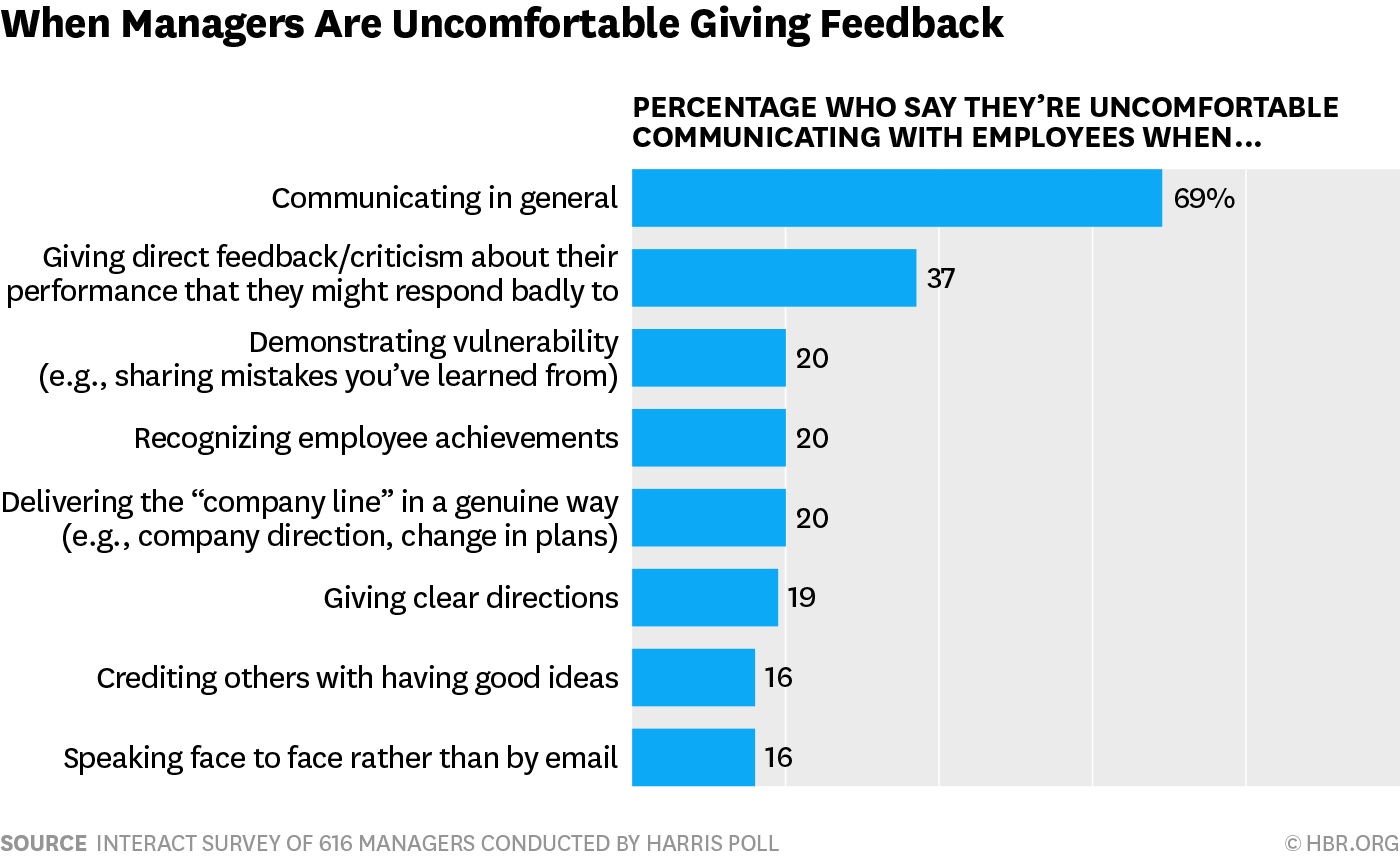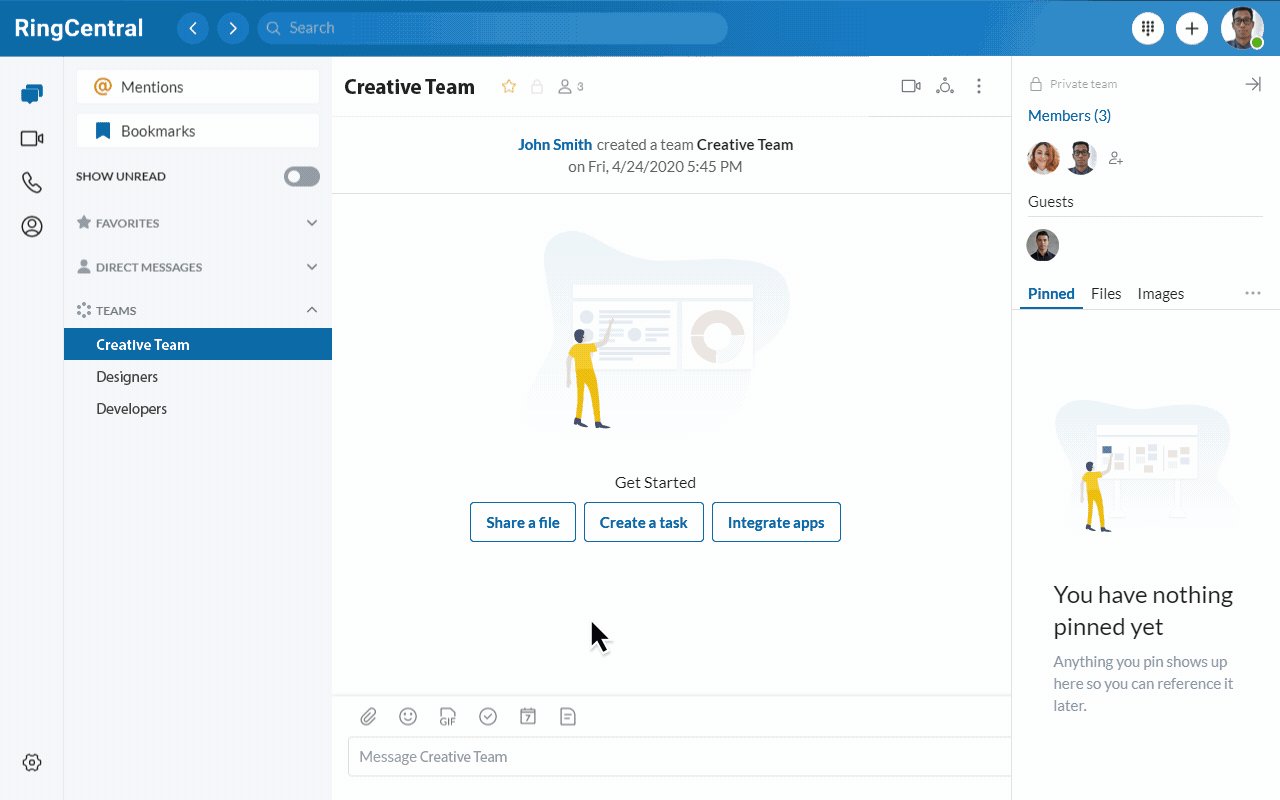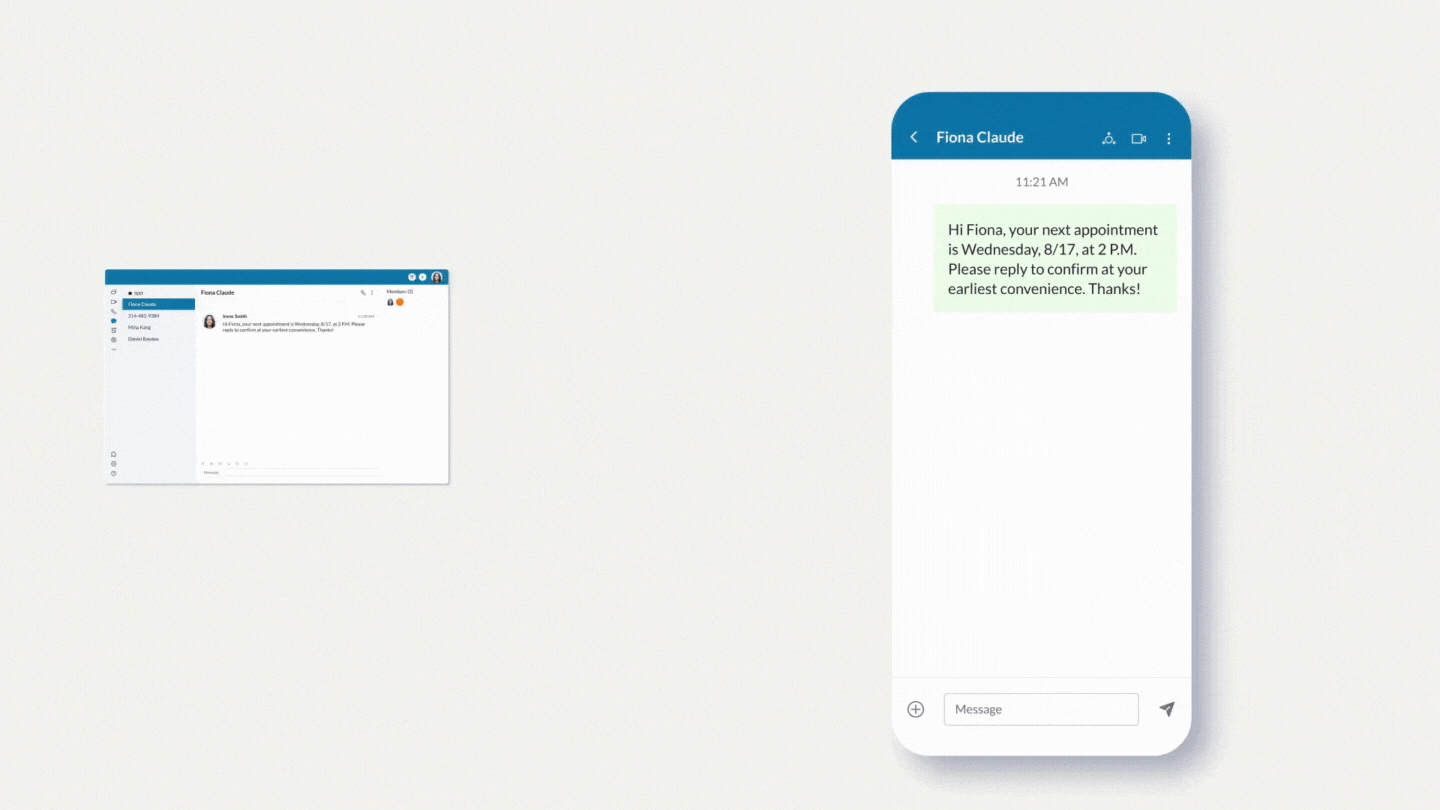Communication in the workplace isn’t just about how well you work with others. It’s about building relationships, minimizing errors, and most importantly, working as productively as possible.
Encouraging good communication habits throughout the workplace can be one of the most crucial things you do as a leader. Because the numbers don’t lie.
In a survey of 400 corporations, it was found that communication barriers cost an estimated $37 billion per year in lost productivity.
So, what effective communication skills can you install in your workplace, and how do you do it?
What is effective workplace communication?
Communication is a vital part of workforce management. And effective communication occurs when a message is sent and received accurately. Just because you believe you are communicating ideas and information properly in your organization, does not necessarily mean it is effective.
Good communication can boost teamwork and lead to better project collaboration. It applies to practically every industry.
Workplace communication is important for streamlining internal communication. Maintaining effective communication ensures that management and the team below them are on the same page. That means that employees are confident with the work at hand and managers are assured that team members are correctly undertaking that work.
But remember, workplace communication and business communication are different. Both are important to a company’s success going forward.
What are good communication skills to have?
Whether you are an enterprise or a small business, having good communication from top to bottom is essential. Part of having good communication is understanding a “shared meaning.” This refers to the real information being understood by each party involved, using words that mean the same to everyone, especially when it’s industry-specific terminology.
Even managers can have a hard time communicating. This comes from an Interact survey asking employers how they feel about communicating with their employees. The graph below demonstrates how managers feel in certain situations with employees:

A staggering 69% of managers are uncomfortable when communicating in general. Not even when delivering difficult news or offering feedback. That’s just in basic, everyday communication. This suggests that communication is lax across many workplaces, which can potentially negatively impact the business.
This has to change.
As a business leader, you need to analyze how you communicate in the workplace in order to see where you can improve. Then, you can develop a strong communication strategy for everyone to work from.
Benefits of effective communication in the workplace
When workplace communications run like clockwork, so does everything else. It’s not just about getting on with your colleagues (although that’s a hugely important part of it). Effective communication is the source of a ripple effect that enhances business processes, turnover rates, and your bottom line.
Let’s uncover some of the benefits of effective communication.
1. Communication mitigates conflict
Good communication can resolve—and even avoid—conflict. After all, who actually likes tension at work? Effective communication based on active listening has the power to prevent miscommunications and handle differences of opinion with civility and respect. Learning how to communicate with people in a way that they understand and connect with is a superpower like no other.
2. It improves public relations
Effective communication isn’t just for your team. Internal communications are essential, but businesses must also interact with external agents (whether that’s a formal sponsorship agreement, reaching out to the public on social media, or answering incoming calls). Effective communication helps organizations connect with their clients, sponsors, and any other external bodies.
Customers who feel listened to and valued by an organization are more likely to stick around. Likewise, businesses with loyal customers gain a reputation for credibility and superior customer service.
3. Communication fuels innovation
Communication goes hand in hand with growth and innovation. Why? Because great communication reduces the amount of time wasted. Employees don’t have uncertainties over what they need to do, when, or how they need to do it, meaning projects run smoothly. Plus, when employees have the confidence to communicate ideas freely, both amongst each other and with senior management, creativity thrives and innovation is born. Not only is that great for the company, but it contributes to employee morale and retention as a result.
4. Communication builds existing skills
Without an open line of communication, even the best talent can become lethargic, unmotivated, and disengaged. When managers and senior staff are good communicators themselves, they can expect to bring out each individual’s best skills. Don’t lose your best minds over poor communication. By employing active listening with your employees, you’ll get to know their unique talents and give them opportunities that will help them thrive.
5. It increases job satisfaction and loyalty
When employees, managers, and senior leadership are engaged rather than estranged, something magical happens. Suddenly businesses experience a surge in employee engagement. Strong communication leads to heightened satisfaction and loyalty as a result. Instead of browsing for their next job on LinkedIn, your employees will be singing your praises.
6. Communication powers productivity
Clear communication ensures understanding. In other words, in organizations where effective communication is (shall we say) lacking, you’ll often find that employees don’t know what they’re doing. They might not fully understand their role or the company’s expectations. When essential information is clearly communicated, employees can work at their best.
Luckily technology is fueling employee productivity like never before. There are now so many fantastic ways to communicate with remote teams and streamline workflows online, such as via virtual calls or VoIP phone services. RingCentral’s app allows teams to meet in HD, share screens, and chat:

You might say that workplace communication has never been easier. By unifying internal communications on one user-friendly portal, RingCentral aids employee efficiency, streamlines those workflows, and keeps productivity levels high.
7. It builds a culture of teamwork and trust
Finally, when managers practice excellent communication across the board, they lead by example. This creates a workplace culture of teamwork, team building, and trust wherever they go. Open communication is the lifeblood of a healthy, trusting work environment. Clear expectations and guidelines, with a healthy dose of understanding, go a long way.
5 ways to improve communication in the workplace
1. Use regular meetings to listen to your team
It sounds simple, but it’s often not practiced enough. Listening to others is arguably the most important communication skill you can have. If you find you’ve got the tendency to talk over others, then try to be more patient. You will get the opportunity to make your point when they’re finished—especially if you’re the boss.
When employees feel like they’re being listened to, they feel more valued and appreciated and creates a more collaborative culture. It also gives you the chance to understand issues or concerns about a task from an employee’s perspective. This can improve employee engagement.
Want to grab some free meeting invite templates now? 👇
2. Keep communications brief and clear
Speak to any successful business manager and they’ll all mention that time is their most important asset. When discussions are dragged out, not only can this dilute the importance of the message, but it can also over-complicate it. Keep your communication brief and to the point.
3. Re-state and clarify important information
Don’t presume the other person understands what you’re saying. Similarly, don’t be afraid to speak up if you need clarity on something. Asking questions can help you to gain a better understanding of certain situations, and you should always be encouraging your employees to ask you if they’re unsure.
Not only can this improve relations with employees, but it can also help to minimize errors. Sometimes a simple question to double-check can save mistakes from happening.
4. Understand and hone your communication style
In order to give them the best service possible, you need to refine your communication style. Perhaps you like to schedule a call and then follow up with some meeting notes. On the other hand, maybe you prefer to video call and catch up with a phone call later on down the line. Either way, you need to make an effort to establish a routine, so your colleagues and clients know what to expect.
This also refers to the frequency of communication. If you respond a minute after your client contacts you, then they’re going to become accustomed to that high level of communication, which you may not always be able to deliver.
5. Stay open minded
Open-mindedness is another good communication skill to have. It allows you to enter a conversation free of judgment or preconceived ideas, giving the person speaking the confidence to explain new ideas that could potentially benefit the business.
If you’re quick to shut things down, then employees will be less inclined to tell you their ideas. Your conversations will be less honest, and less productive because of this. By keeping an open mind you’re willing to enter into a dialogue with someone whose opinion you may not agree with, and you may surprise yourself by the end of it.
5 helpful communication tools for the workplace
Effective workplace communication means nothing if you do not have the right tools to help foster teamwork! Now more than ever, teams are working from home, leaving less face-to-face interaction in the office. There are many communication apps that businesses can use to help with better communication.
Here are the top tools your business needs to communicate better with coworkers.
1. Video conferencing

With the workplace environment becoming more flexible, many employees choose to work from home. But this doesn’t mean they should miss out on team meetings. They want to see body language, facial expressions, eye contact, and everything else that you’d pick up on from face-to-face communication.
That’s where video calling comes in. With video calling, you can effectively communicate with employees who are working remotely while still offering the experience of being in a meeting.
2. Team messaging

Team messaging can be one of the main ways that coworkers communicate when they’re out of town or working remotely. Although messaging isn’t always used as the number one means of communication, it can be greatly beneficial alongside video or phone calls.
When it comes to managing remotely, messaging is often needed after a phone call to recap what was said—a good idea when you want to ensure your employee has understood everything. It can also be quicker than typing out an email and leaves less room for miscommunication, as any queries can be quickly and efficiently cleared up.
3. Phone calls

It may sound old-fashioned but every company needs a reliable business phone service to communicate with clients and coworkers. You could need a business phone to hop on a quick call with a colleague, or need a centralized number for customers and clients to call in order to get a problem resolved.
Phones allow for voicemails to be left and easy access to a customer service representative. What better way to communicate than with the original communication tool?
4. Texting (SMS)
Text messaging is on the rise as a hugely important communication tool across businesses of all sizes. Like team messaging, texts can be a great way for employees to chat with one another, no matter if they’re in the office or remote.
A huge bonus: There are also lots of ways to use SMS for better customer service! And a robust cloud phone system like RingCentral comes with SMS capabilities built in:

5. Email
Emails are a popular way to communicate in an office from peer-to-peer or B2B. However, as times have moved on and people are becoming more proficient in using video calling software and cloud based phone systems, emails are used less and less often.
As per our earlier graph, 16% of managers said they feel uncomfortable speaking face-to-face rather than via email. Considering communication is better understood when verbal and face-to-face, this is a worrying statistic. As a leader, you have to be confident in non-verbal communication, especially when it comes to employees.
Why is communication important?
As a business leader, being an effective communicator at work is vital. One of the best ways you can improve communication within your company is to invest in amazing communication tools. This includes cloud-based communication and collaboration software.
The right software can enable your employees to communicate quickly and effectively, especially if they’re working remotely. As you’ve seen, video conferencing and phone calls can allow you to stay connected, no matter where you are. This, coupled with a great communication strategy for the office, can help you to be an effective communicator with clients and colleagues alike.
Originally published Dec 17, 2022, updated Sep 26, 2024







